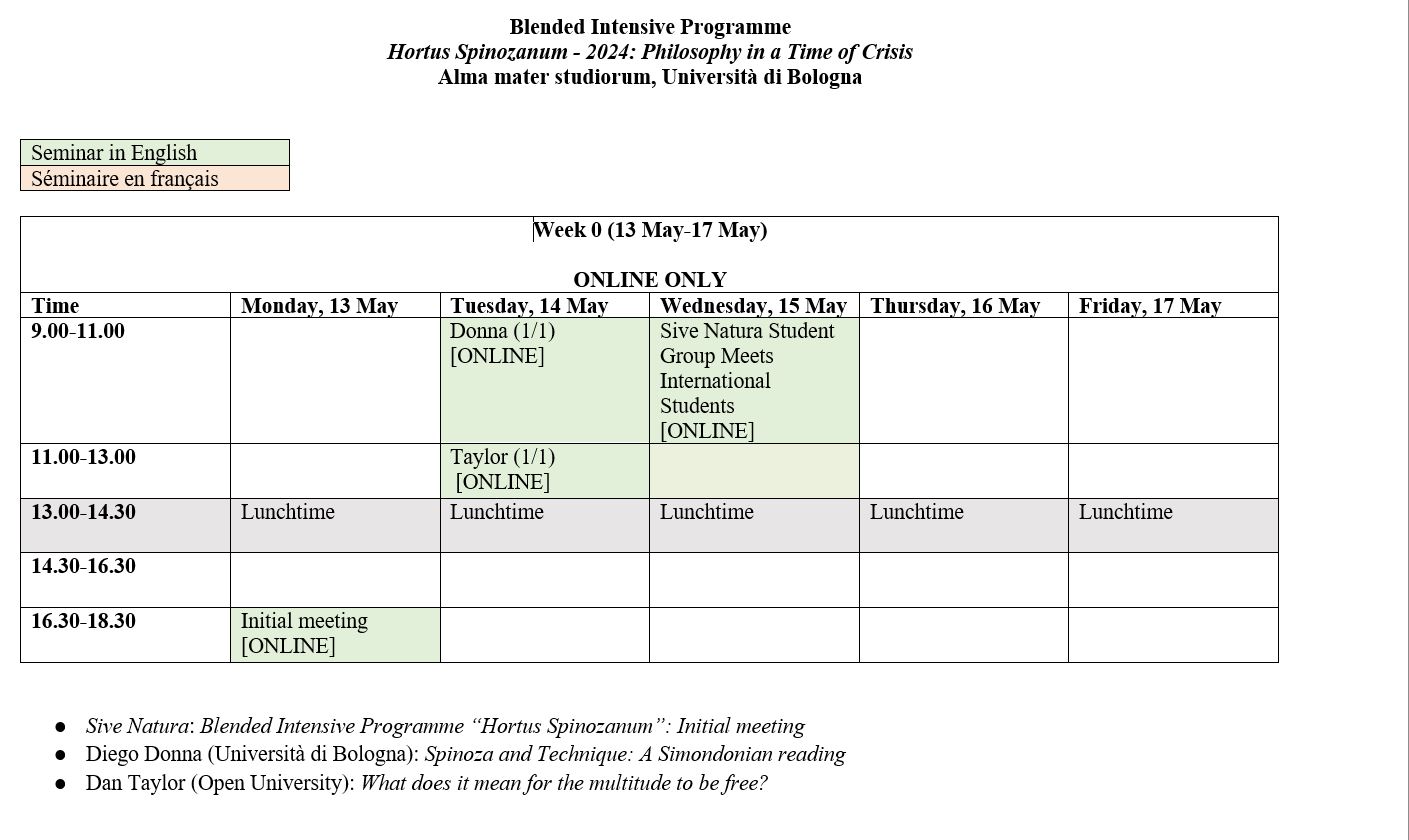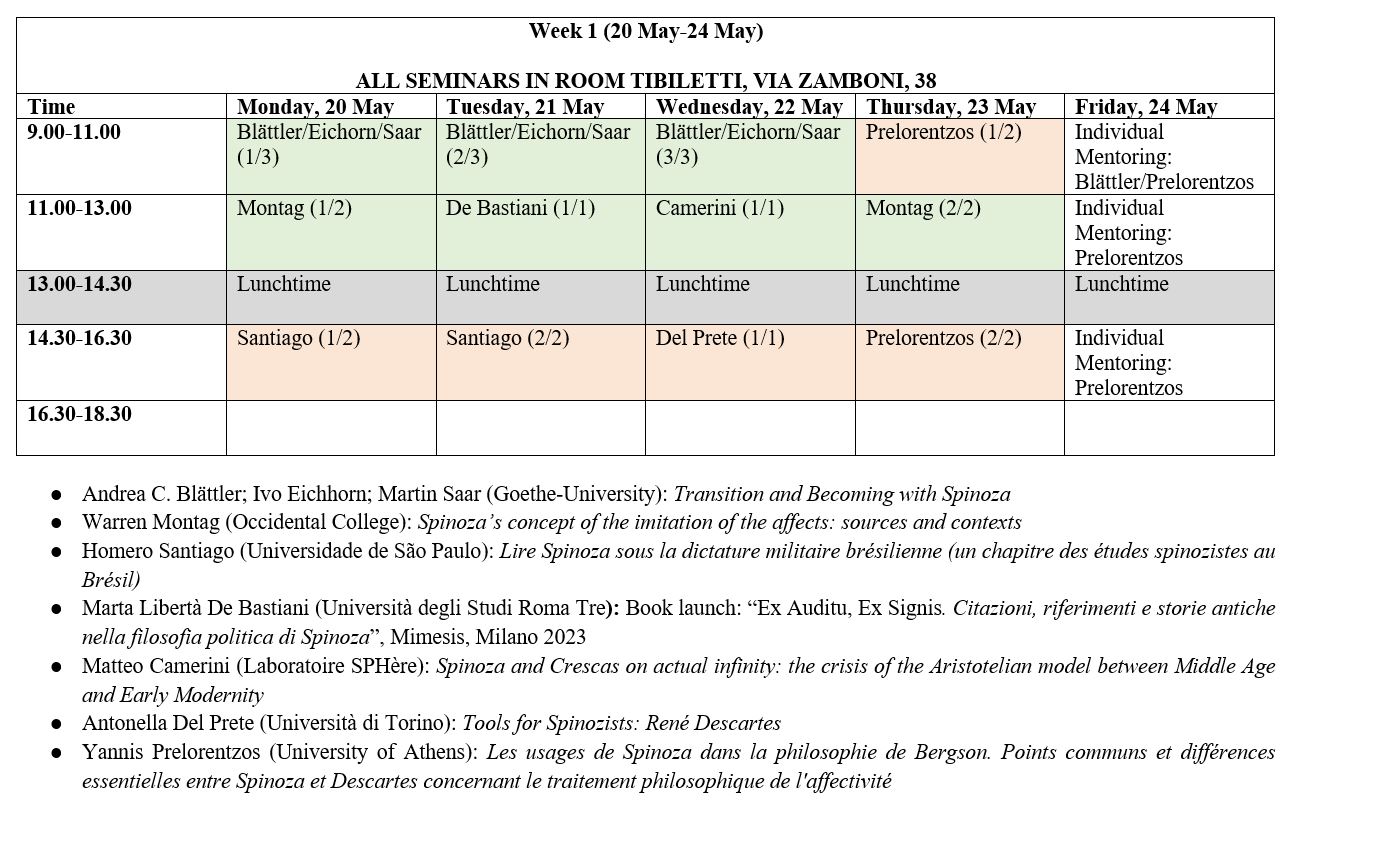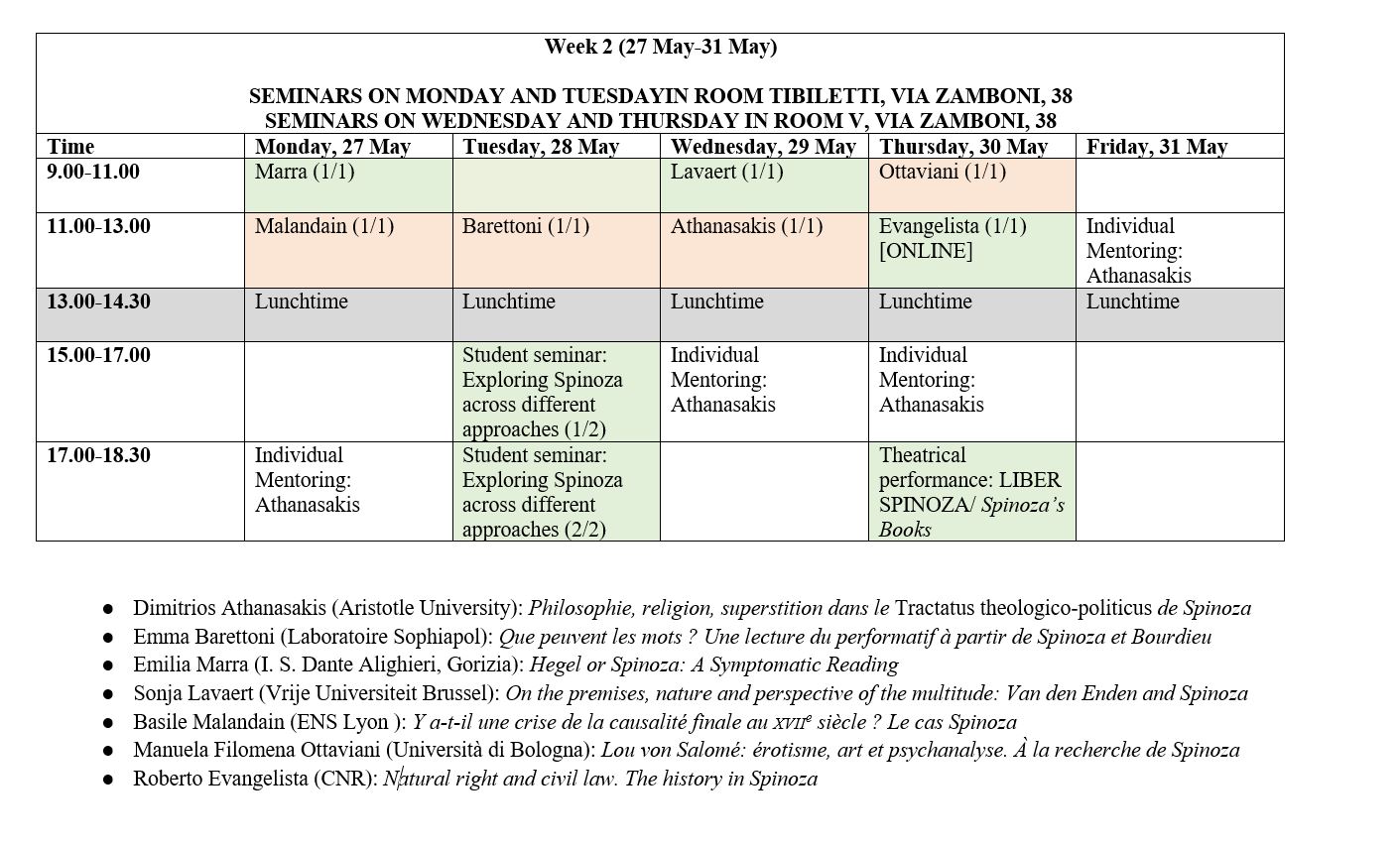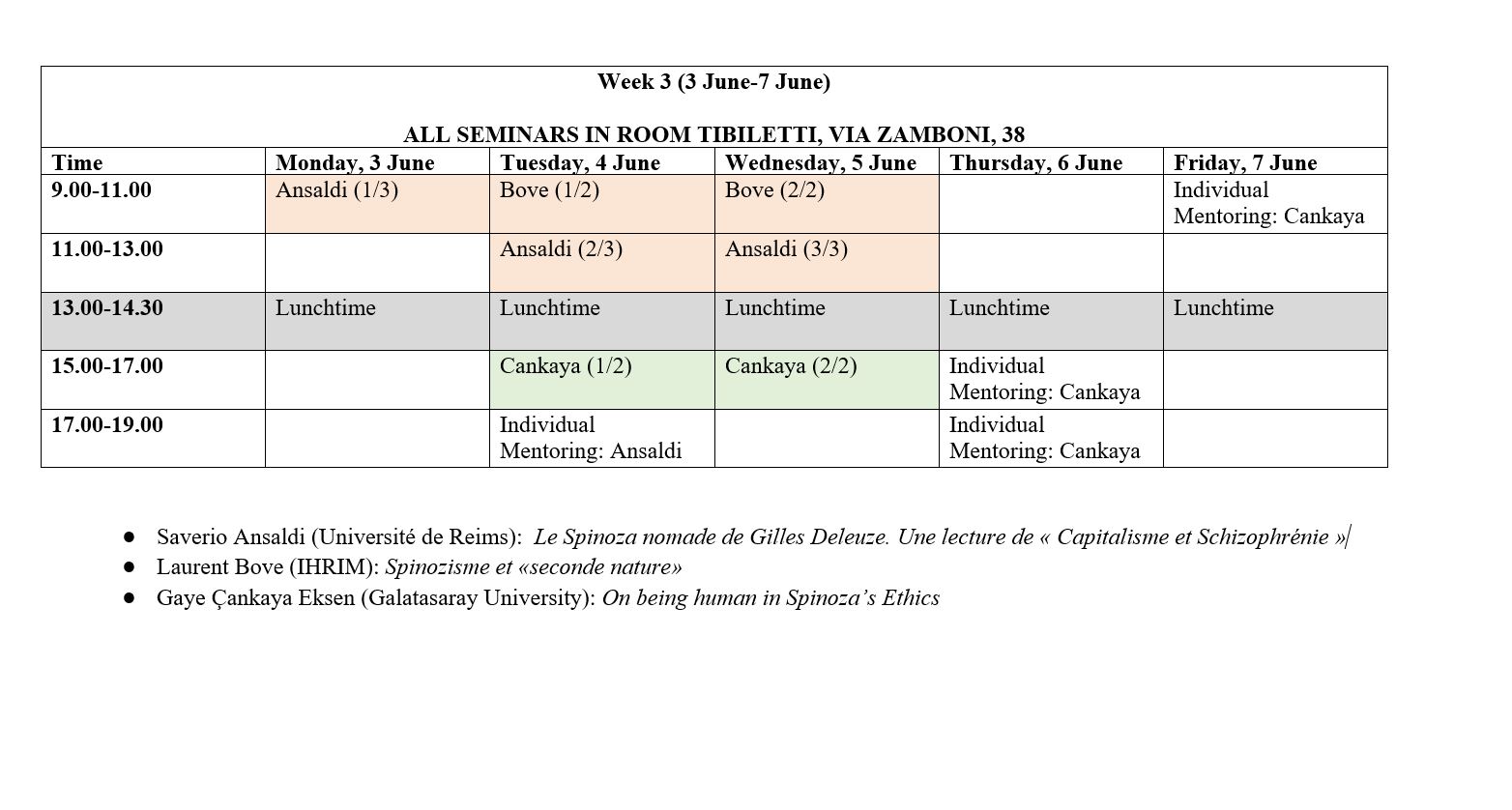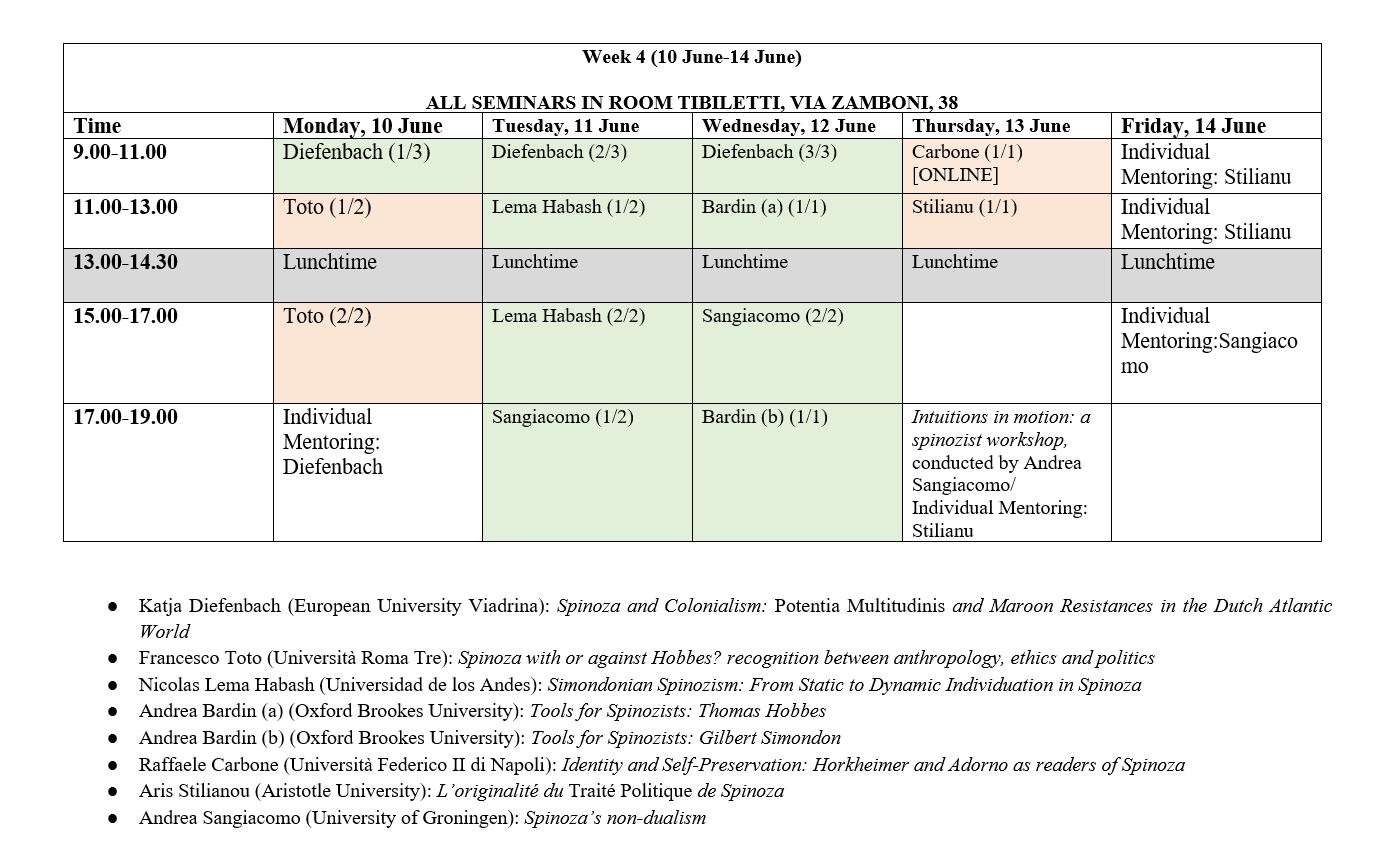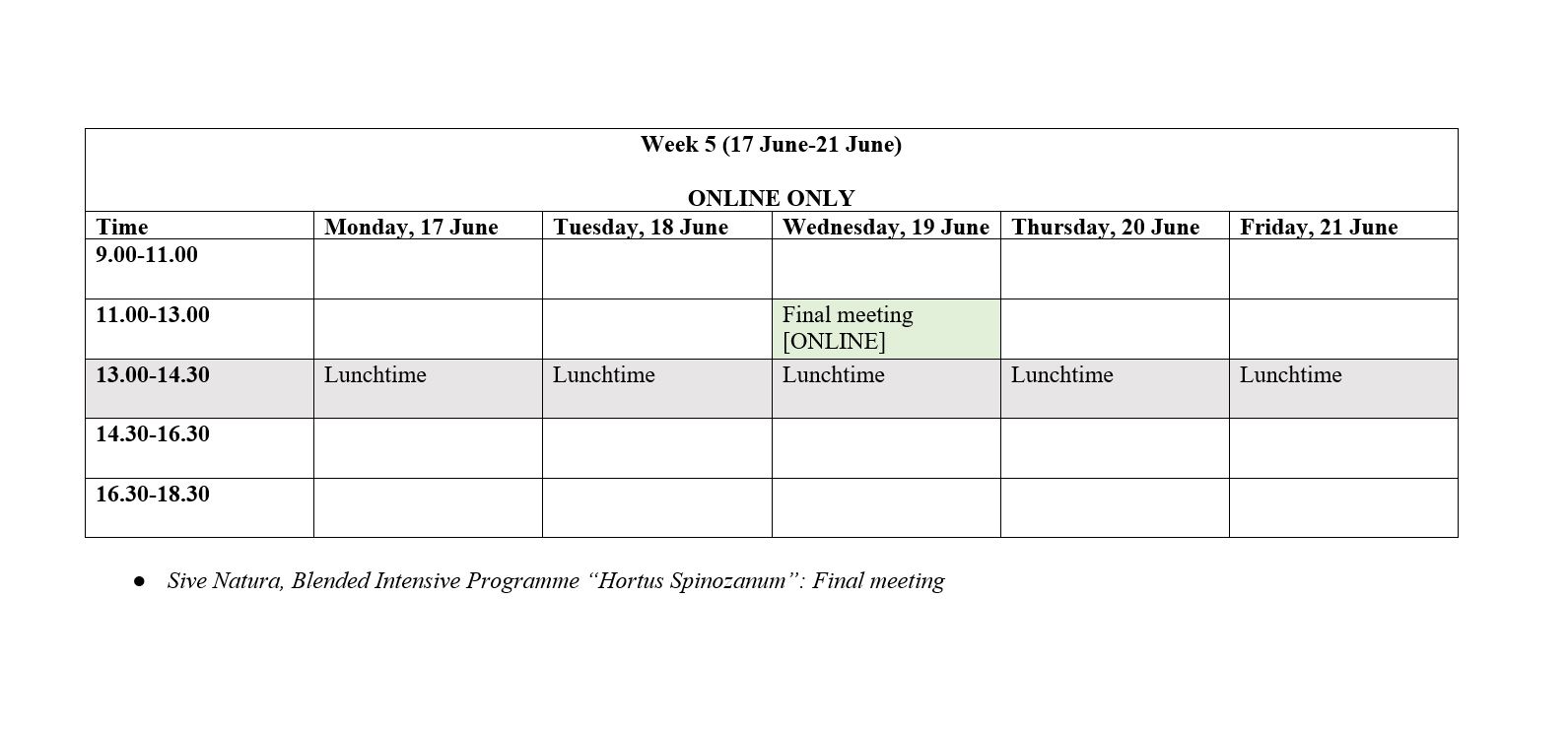BIP – Hortus Spinozanum: Philosophy in a Time of Crisis
The project "BIP - Hortus Spinozanum: Philosophy in a Time of Crisis" aims to use Spinoza's philosophy to reflect on current pressing issues.
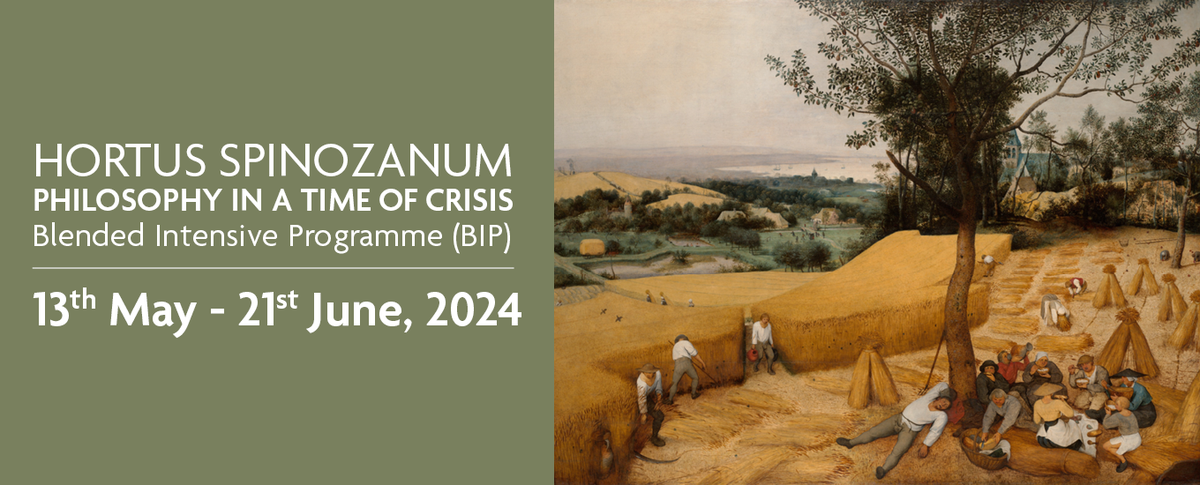
The project BIP - Hortus Spinozanum: Philosophy in a Time of Crisis aims to use Spinoza's philosophy to create a shared reflection on the pressing issues of the present. Blended Intensive Programs (BIPs) are a new funding scheme of the Erasmus+ Program. They consist of international educational activities that combine virtual collaboration and brief physical mobility, offering challenge-based activities. The project, coordinated by Department of Philosophy and Communication (FILCOM) of the University of Bologna, is part of the activities of the International Centre for Spinozist Studies "Sive Natura" and involves multiple European and non-European partners.
The project explored the potential of blended learning, combining in-person and distance activities involving teachers, students and lecturers to initiate the construction of a broad and multidisciplinary collaboration network. The activities were divided into three phases, the first and third of were online, while the second took place at the University of Bologna, between 20 May and 14 June 2024. The objectives of the distance phases, respectively, prepared for the in-person activity by elaborating a common vocabulary and shared methodologies (phase I) and further elaborating and developing the results of the previous work (phase III). The phase that took place in Bologna consisted of workshops, collective readings, presentations and discussions in which students and lecturers from the partner institutions took part. It was used part a bottom-up approach aimed at fostering collective dialogue. The programme carried six credits, for a total of 30 teaching hours (between F2F and online).
Activities will be conducted mainly in English and French.
In addition to providing critical tools for interpreting the present era from a Spinozian perspective, the project also offered an opportunity to study multiple aspects of Spinozism and Spinoza's thought. The project foregrounded critical-analytical reading of his texts, the study of its theoretical roots and the historical-philosophical context in which Spinoza lived and worked, as well as an exploration of how his thought has been inherited, commented on and criticised or extended by later thinkers. The objectives pursued included the acquisition of a vocabulary appropriate to the students' orientation towards the historical and philosophical issues in question, as well as knowledge of the secondary literature essential for contextualising these issues within the historiographical debate.
The project has a long-term goal of helping to consolidate the international dimension of Spinoza studies. The participation of members of Sive Natura - International Centre for Spinozian Studies and partners from other institutions will enable the integration of a multiplicity of perspectives and methodologies that reflects the cultural richness of the continental philosophical landscape.
Partner universities:
Université Paris 1 Panthéon-Sorbonne, Rijksuniversiteit Groningen, Université libre de Bruxelles, Galatasaray Üniversitesi, Aristotle University of Thessaloniki, Europa-Universität Viadrina, École Normale Supérieure de Lyon, Université de Reims, National and Kapodistrian University of Athens, Johann Wolfgang Goethe Universität
Programme schedule
